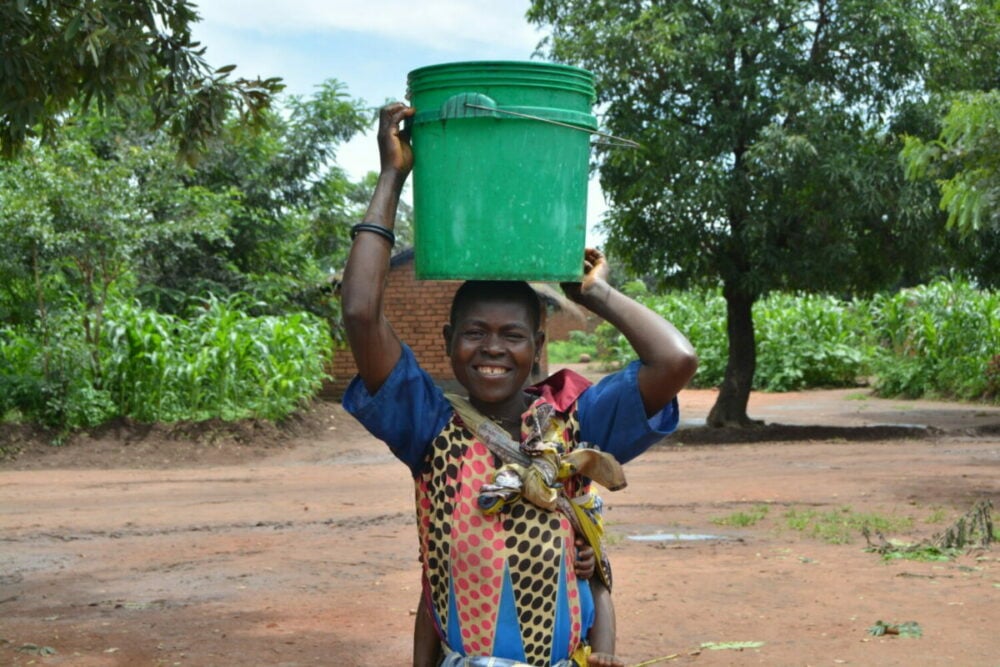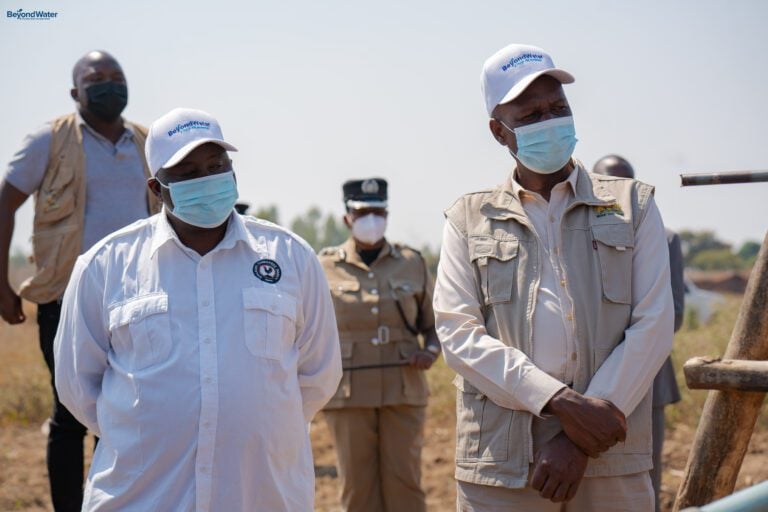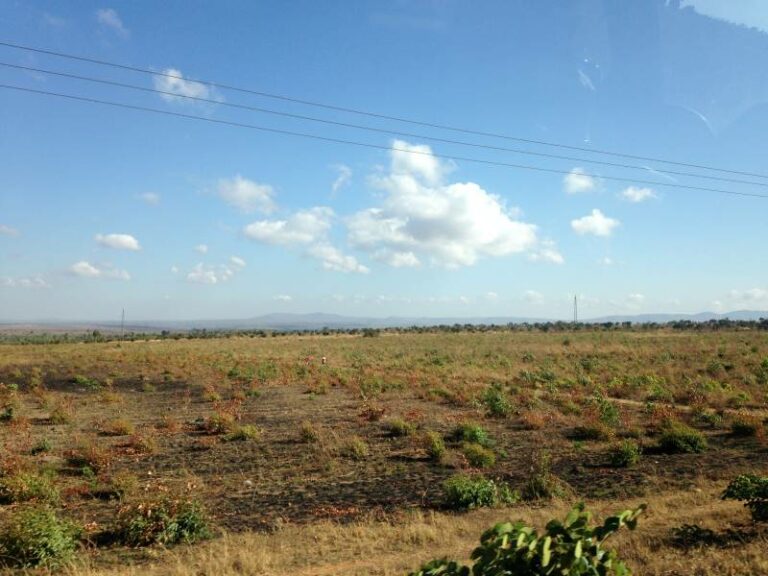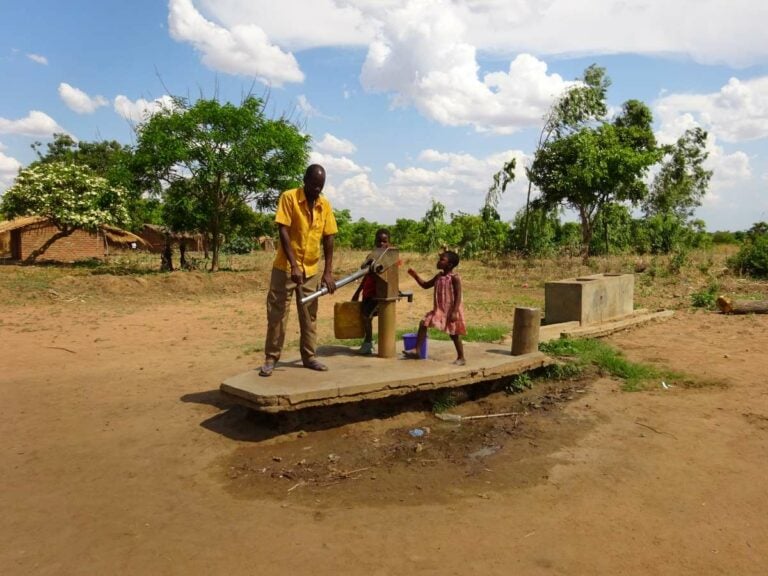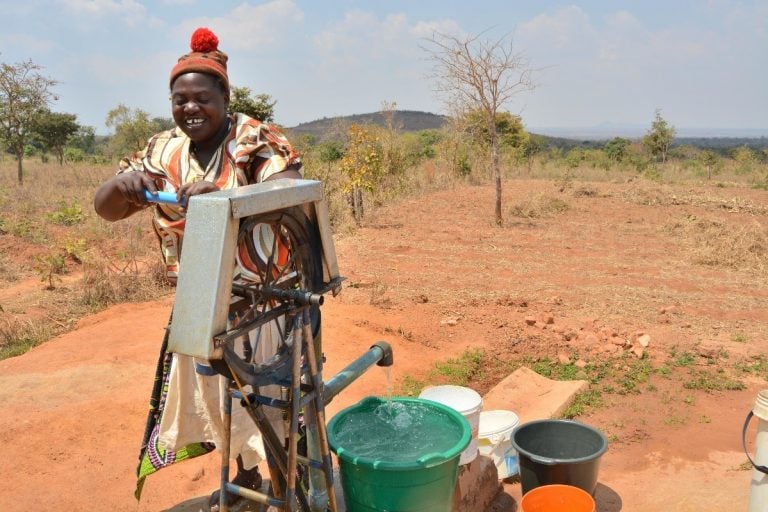end one million wasted journeys
It’s no secret that water is essential for life, and that many communities across the world are suffering the consequences of its scarcity. Malawi is one of those countries, but lack of water access is very much a hidden crisis. We want to end one million wasted journeys.
Recent studies have highlighted that only 50% of community water points in Malawi are fully functional. What this means is that for many communities, their local water point either does not work or, if it does, it is under excess stress, as other communities have travelled from further afield to reach a working pump.
As a result, a functioning pump could be serving many more people than it was designed for, resulting in long queues and faster wear and tear – making further breakages far more likely.
The impact of this low pump functionality on rural communities is significant. Across Malawi, women and girls shoulder the responsibility of water collection among their other duties, and according to the United Nations, walk up to 6km every day for water collection. This is an enormous burden resulting in millions of wasted journeys, which significantly impacts their health and prospects.
Having to walk so far to collect water is not only wasteful and tiring, but incredibly time-consuming, particularly when over one million wasted journeys are required in a single day.
This means that girls are often forced to choose between school and water; a choice no child should have to make. Perhaps it’s not so surprising that according to the World Bank, less than 25% of girls in Malawi complete their education. Instead, they make more than one million wasted journeys to collect water.
Convenience and hygiene run in a parallel. So having an inconvenient water source means that clean water is used sparingly, and it is hand-washing that goes amiss. The Covid-19 outbreak has highlighted hand-washing as one of the most important hygiene behaviours, but this newer virus is not the only risk. Poor sanitation also leads to outbreaks of otherwise preventable water-borne diseases, such as diarrhoea.
The solution to the above is simple; convenient and sustainable access to a safe water supply. Convenient pumps mean more time in school, and more water to go around. Since 2014, Pump Aid’s award winning approach has brought a new dimension to aid, and best of all, we know it works.
We’ve trained more than 80 water entrepreneurs to install, repair and maintain water pumps so we can end one million wasted journeys.
Each intake receives 2 initial weeks of technical training covering well digging, as well as pump and borehole repair and maintenance, including the provision of tools and safety equipment.
Knowing how to fix the pumps is one half of the job, and we want to equip our entrepreneurs with the skills to run a successful business. That’s why our training also covers sales, networking, negotiation, marketing and book-keeping as part of our business training, and entrepreneurs will receive refresher sessions and ongoing mentoring for two years.
But, installation and repairs aren’t enough; we want to ensure that pumps don’t break down again, and if they do, they are quickly fixed and not abandoned to the elements. To address this, we’ve been connecting our entrepreneurs with the District Water Offices and community pump committees to develop annual service agreements, so that the pump is regularly maintained and less likely to break down and need a repair: guaranteeing clean water for a community and guaranteeing income for an entrepreneur.
As much as water access disproportionately affects women and girls, our water entrepreneur programme improves their lives for the better. Not only do our pump mechanics keep clean water flowing for rural communities, but many of the entrepreneurs themselves are women.
One such pump mechanic is Selina (pictured). A 38 year old mother of 5, Selina works across the Kasungu district, where she maintains and repairs 29 community pumps.
Mechanical jobs are certainly not easy, and no less so for women, as Selina tells us that male clients often underestimated her capability as a mechanic.
But Selina didn’t let that phase her, although she attributes part of this to her training, saying that
“My self confidence is boosted together with a positive change in mindset for greater purpose. I am now trusted by the same men who used to doubt my services.”
